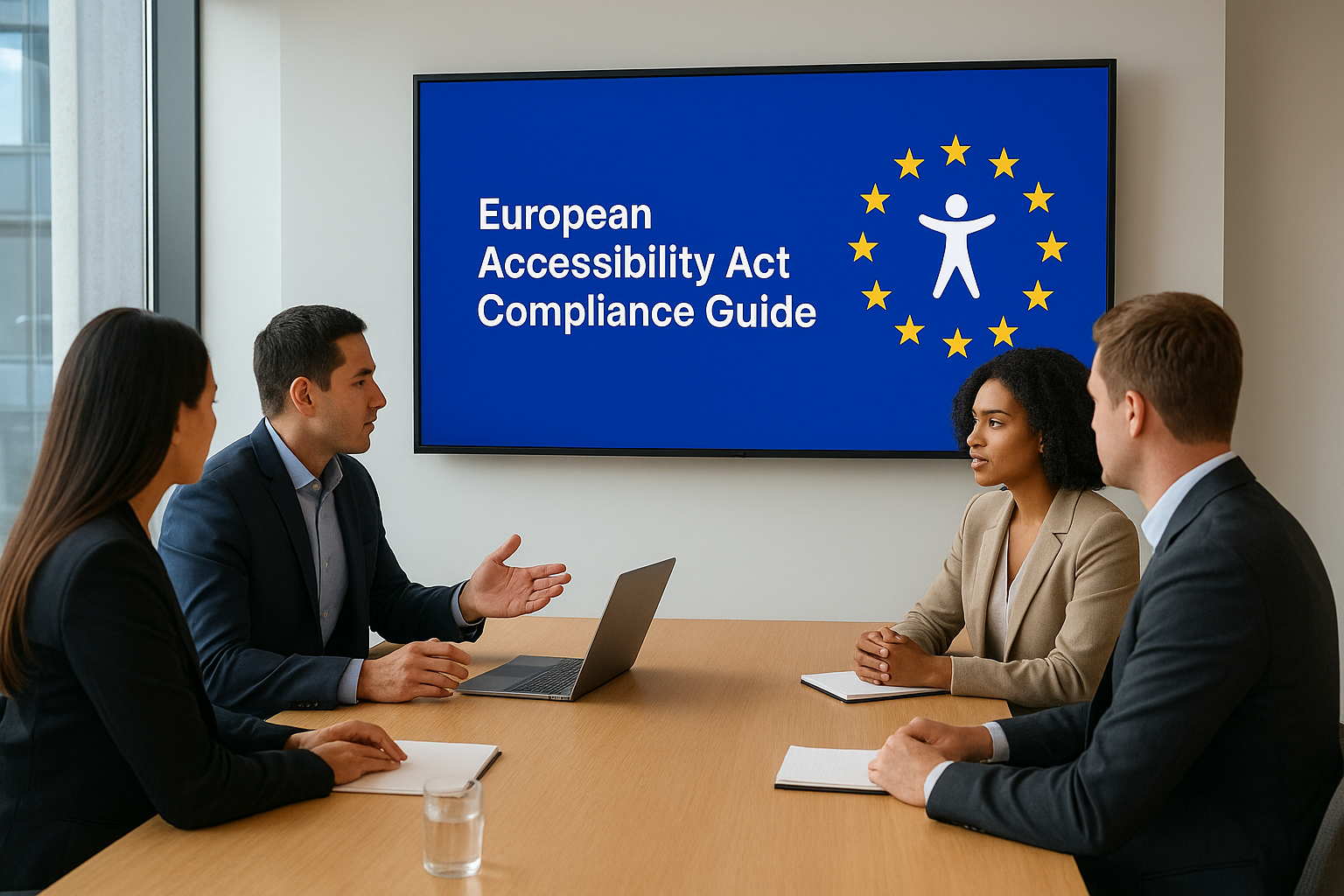Latest Developments on the E.A.A. (European Accessibility Act)
Date Published: Jul 26, 2025
Date Modified: Jul 26, 2025
Starting 28 June 2025, the E.A.A. becomes fully enforceable across all EU/EEA Member States. Products and services must meet accessibility standards upon release, with older offerings needing compliance by 2030.
E.A.A. Officially Enters into Force: 28 June 2025
This includes critical services like emergency call systems (112) which now must support Real-Time Text (RTT) and Total Conversation (TC); Member States may extend implementation to 2027.
Standards and Technical Requirements
Compliance is built around EN 301 549, the harmonized EU ICT standard, which references WCAG 2.1 AA as the technical baseline. Micro-enterprises (< 10 staff or < €2M turnover) are exempt from obligations.
A revised version of EN 301 549 is anticipated by end of 2025, expected to update requirements in line with WCAG 2.2 AA.

Country-Specific Transpositions and Penalties
Germany has implemented the E.A.A. through its Barrierefreiheitsstärkungsgesetz (BFSG). It takes effect from 28 June 2025 and includes specific technical regulations (BFSGV). Exemptions are allowed only in documented cases of disproportionate burden or fundamental change.
Penalties vary by country:
- Germany: fines up to €100,000 or more
- France: fines up to €50,000 for omitted accessibility statements
- Other EU countries have their own thresholds; enforcement may include service bans and operational limitations.
Sector Highlights- EdTech
EdTech providers are being urged to prioritise E.A.A. compliance:
- Platforms, digital learning tools and assessments sold in the EU must meet WCAG 2.1 AA / EN 301 549 standards.
- Accessibility is increasingly factored into procurement decisions.
- Retrofitting to meet standards is more costly than designing inclusively from the outset.
Key Takeaways
- The countdown is on: If your products or services are targeted at EU users, compliance is mandatory from 28 June 2025 - legacy systems must comply by 2030.
- Stay ahead: Adopt WCAG 2.1 AA, plan for 2.2 AA soon. Monitor the release of the revised EN 301 549.
- Local compliance matters: Understand how national law differs-assess each market where you operate.
- Engage training/webinars: Trainings from AbilityNet, AccessibleEU, or EdTech Alliance remain invaluable.
- AI tools have limits: Automated overlays or code generators can help but cannot guarantee compliance-manual review remains essential.


